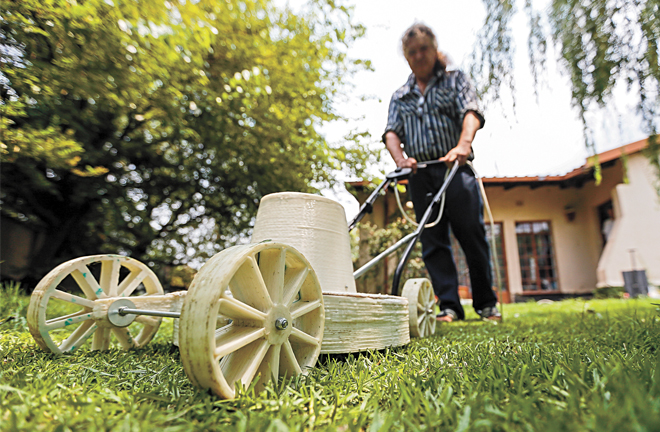Africa looks to creative economy for growth

An inventor from South Africa demonstrates a 3D-printed lawn mower.
Creative cultural industries are a favorable pathway to economic growth in Africa, said experts during the International Symposium of Ségou recently held in Mali, a republic in the northwestern part of the continent. In the least-developed countries in particular, creative cultural industries can boost local economic development, increase employment and make society more inclusive.
Though raw materials extraction and manufacturing have played a decisive role in the economy so far, development will gradually become less dependent on these factors and non-material aspects will take their place as the driving force, according to the report released at the symposium. Soft power, such as talent and knowledge, will form the foundation for creative economy.
As a consequence, developing countries should make an effort to enhance innovative capacity, use new media and new technology to overcome spatial barriers, and develop technology-intensive or service-related industries.
Though the world is embracing a new economic model, developing countries still face many difficulties in this respect, said Siré Sy, CEO of the Africa WorldWide Group in Senegal. Lacking professional knowledge and capabilities in terms of investment and marketing, some developing countries are unable to provide diversified creative products and services.
For instance, many African nations have weak infrastructure for education, insufficient funding at the local level and low levels of technology, making it hard to support the development of small or medium-sized creative enterprises. As a result, it is also difficult to alleviate poverty in small communities or rural areas.
“Despite a rich and unique cultural heritage, Africa is disadvantaged in developing creative economy. For Africa to become an incubator of creative economy, it is crucial to strike a balance between traditional manufacturing and new emerging creative industry,” Sy said. “This means, on one hand, we should develop infrastructure and manufacturing industry to nurture creative industry and on the other hand, enhance innovation capability and develop creative industry to upgrade the manufacturing industry.”
Yao Xiaodan is a reporter from Chinese Social Sciences Today.
